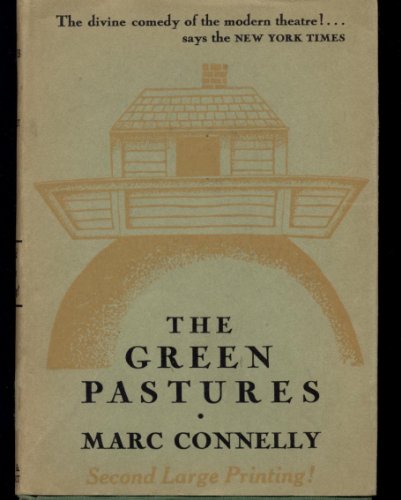Background
Marcus Cook Connelly was born on December 13, 1890, at McKeesport, Pennsylvania. Connelly’s parents were touring actors who, a year before he was born, settled down in McKeesport to manage a hotel frequented by actors.



(A musical comedy based on white novelist Roark Bradford's...)
A musical comedy based on white novelist Roark Bradford's "Ol' Man Adam an' His Chillun", a retelling of Old Testament stories based on the beliefs of Southern African-Americans, and which featured a large cast of African-Americans during its celebrated New York run. Described by Bruce Kellner in 'The Harlem Renaissance: A Historical Dictionary' as "one white writer's version of another white writer's version of one black preacher's version of religion," it nevertheless was well-written and enjoyed enormous popularity, winning the Pulitzer Prize for Drama and running for several years. Despite opposition from Southern theatre owners, Warner Brothers produced an entertaining and successful 1936 film version directed by Connelly, with Rex Ingram as "De Lawd.".
http://www.amazon.com/gp/product/B000OKNM24/?tag=2022091-20
Marcus Cook Connelly was born on December 13, 1890, at McKeesport, Pennsylvania. Connelly’s parents were touring actors who, a year before he was born, settled down in McKeesport to manage a hotel frequented by actors.
He attended Trinity Hall School in Washington, Pennsylvania. His family’s financial troubles ended his education.
He worked as a reporter in Pittsburgh until 1917, when he joined the Morning Telegraph in New York City, covering theatrical news. He then began his collaboration with Kaufman, who worked for the drama section of The New York Times. Their first successful play, Dulcy (1921), written as a vehicle for the actress Lynn Fontanne, was followed by To the Ladies (1922), a vehicle for Helen Hayes. Beggar on Horseback (1924), in the style of German Expressionist drama, depicts the threat to art from a society dominated by bourgeois values.
While they collaborated in writing a satire on Hollywood, Merton of the Movies (1922), and two musicals, Helen of Troy, New York (1923) and Be Yourself (1924), Connelly and Kaufman were members of the Round Table of the Algonquin Hotel, a circle of New York City’s theatre people and writers. Connelly described this phase of his career in Voices Offstage: A Book of Memoirs (1968).
Green Pastures, based on Roark Bradford’s book Ol’ Man Adam an’ His Chillun, was first performed in 1930 and won a Pulitzer Prize. It was extremely popular both on the stage and in its motion-picture version (1936), but when it was revived in 1951 it was criticized for perpetuating unacceptable stereotypes of blacks.
Connelly’s last Broadway success, The Farmer Takes a Wife (1934), written with Frank Elser, was a comedy about life along the Erie Canal in the 19th century; a film version of it was made in 1935. From 1946 to 1950 he taught playwriting at Yale University. His early plays Dulcy and Beggar on Horseback were revived on the New York City stage in the 1970s. His novel A Souvenir from Qam was published in 1965. Connelly died in New York City, December 21, 1980.
(A musical comedy based on white novelist Roark Bradford's...)
(183p black hardback with green lettering to spine, d/j sl...)
He was a key member of the Algonquin Round Table.
He married Madeline Hurlock in 1930. They divorced in 1935.
